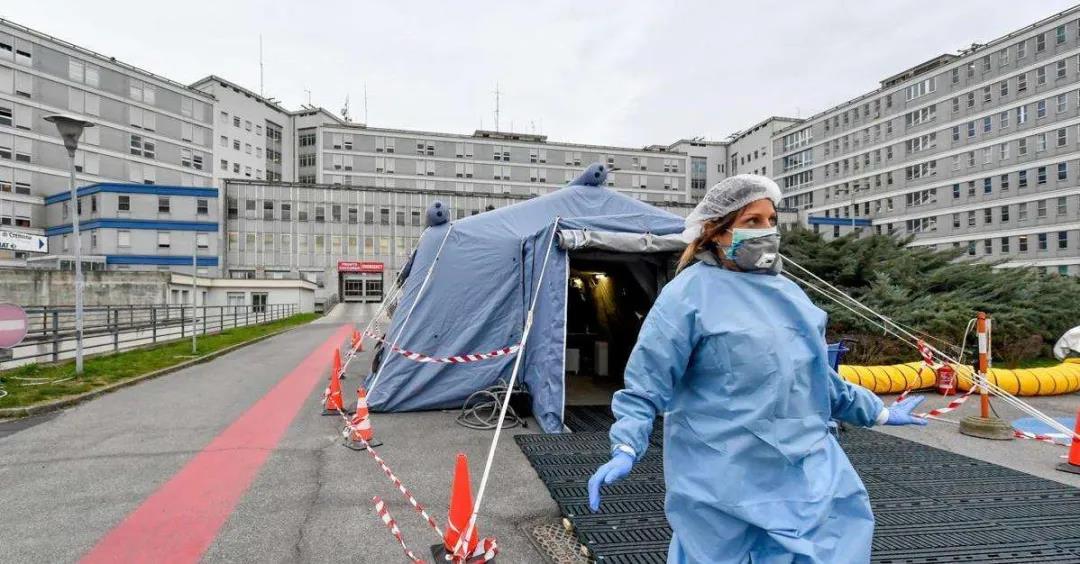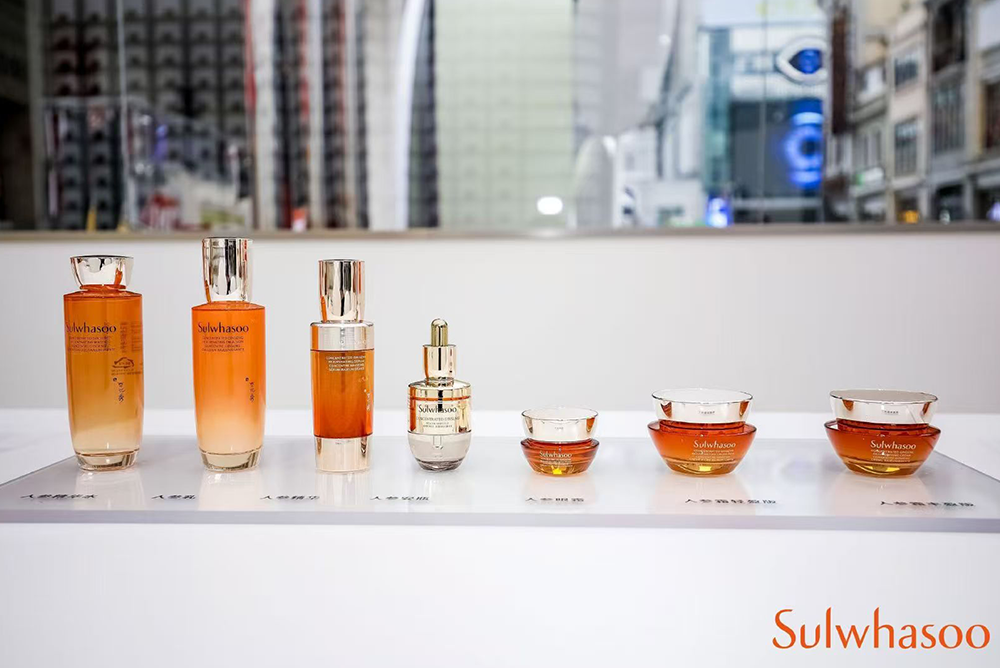- 2020-12-25
- 阅读量:1692
- 来源|CBO
- 作者|Zhang Huiyuan
2020 has had a rough start. As the global pandemic keeps ravaging, many countries have adopted lockdown measures. The US stock market had four circuit breakers in 10 days. Financial bubbles threatened to burst, another blow for China’s cosmetic industry that just pulled itself together through the COVID-19 outbreak.
According to the updates of the National Health Commission of the People’s Republic of China, for the very first time, there was no new cases found in Wuhan, Hubei on March 18, which marked a crucial turning point for China’s efforts to contain and mitigate the COVID-19 outbreak. However, the outbreak outside China was quite severe.
As of this feature (March 19, 2020), statistics of many media outlets revealed that at least 41 countries around the globe had declared a state of emergency. The outbreak has been officially announced as the “biggest public health emergency that has taken place in China since the founding of the People’s Republic of China”, and its speed of spread, the scope of infection and difficulties in prevention and control around the globe are unprecedented.

Currently, as the outbreak is surging around the world and corresponding prevention and control measures become increasingly strict, more countries have been dragged into the global pandemic. A lot of retailers and factories are shut down in many countries, and foreign trade is blocked. In particular, the US stock market had a record of four circuit breakers in ten days. Economists believe a global economic crisis is looming.

△ Up-to-date global COVID-19 cases as of March 19, 2020
When the nest falls, the eggs break. The global pandemic continues to exert impacts on China’s cosmetic industry.
01
Shortage!
There is an acute shortage of rare raw materials such as essential oils. Orders from many countries are postponed because of the global pandemic.
At present, apart from imported goods, many domestic brands import their raw materials from around the globe. The blockage of trade between countries has affected the supply of raw materials.
As our reporters discovered through the interview, most brands stored products and raw materials in response to the domestic outbreak—two months before global outbreak. As most brands indicated, because of poor sales during the Chinese New Year, their inventory would last for two to four months even if the global logistics are cut off.
Take the geoskincare as an example. As CEO Liu Xiaokun of geoskincare told CBO, raw materials of the geoskincare are mostly imported from the Republic of Korea, Germany and Japan. Geoskincare stored sufficient quantities of raw materials before the global outbreak at the beginning of domestic outbreak.
According to Liu Xiaokun, “We prepared a sufficient storage of major materials and essential oils, and we even stocked three-month inventory of pumps. All our warehouses are stuffed with packing and raw materials worth RMB 100 million. We planned to stock up to get us through until June.”
Meanwhile, in his view, impacts of the global outbreak on raw materials such as oils and surface-active distributors are small because there is a sufficient supply in the Chinese domestic market. “Rare raw materials such as fragrance, flavor, extracts and essential oils are severely affected”. According to Liu Xiaokun. For instance, the verbena oil produced by a renowned European raw material supplier is only supplied to the geoskincare company and another international brand. It is the unique raw material that makes the brand distinctive. When the supply is hindered by the pandemic, the availability of the product will be impacted.

△ Comments on social media about increasing price of essential oil and other raw materials
In the afternoon of March 17, total cases found in Austria reached 1,016. The country declared “state of exception”, and adopted a series of strict containment and mitigation measures. The geoskincare company launched a lip balm in collaboration with Austrian brand Swarovski which became a hit upon launch. The inventory ran out by the end of 2019.
As Liu Xiaokun indicated, a total of 200,000 lip balms worth more than RMB 10 million were supposed to arrive in China by the end of March. However, the date of delivery cannot be confirmed now.

△ geoskincare x Swarovski tinted lip balm
02
Price up!
Upstream factories hoard raw materials and drive the price up, which might lead to increasing price of products.
The global pandemic’s impacts are not limited to products originated from Austria. Nor do brands suffer the most. According to OEM/ODM enterprises, upstream factories were affected first.
As a head of an OEM based in Guangdong Province revealed, under current circumstances, a lot of factories abroad are falling behind because of limited production capacity. Some of the factories overseas that participate in the global supply chain and have cooperated with Chinese factories in the past now outsource some urgent orders to Chinese factories to complete. Hence, there is a surge in orders for some Chinese domestic factories.
According to the same head of the OEM based in Guangdong, it is for this reason that the packaging factories in China have been quite busy recently. In particular factories with large scale and production capacity have been receiving many last-minute orders from abroad.
He also explained that there are many essential oil suppliers based in Europe, suppliers of cosmetic raw materials based in the Republic of Korea, and suppliers of extracts for domestic skincare brands based in Japan. In this sense, it is inevitable that the price of above-mentioned raw materials will go up as the global outbreak continues and countries adopt relevant measures.
CBO journalists also discovered that many domestic cosmetic products have raised their prices since the end of February. For example, SIXGOD’s price increase for the floral water series is mainly due to the surge in price of raw materials. Specifically, ethanol’s and artificial bezoar prices between February and April are up by more than 20% and 266% respectively over the previous year.

△ SIXGOD’s price adjustment announcement issued on February 28
Many brands complained about pressures of price increases on social media. As a head of an emerging brand based in Fujian complained on Sina Weibo (Chinese Twitter), “Prices of imported raw materials are up sharply. We were desperately hoping that the domestic outbreak would be controlled, but it started spreading globally. We barely had any revenue last month (February). What we made this month (March) has all been used for supplies.”
An engineer who preferred to be anonymous disclosed that domestic upstream factories are having difficulties in replenishing raw materials because of the global pandemic. Some of them are going to stock up and raise prices. Packaging materials price has gone up substantially. As China just started resumption of production, cosmetic factories may not resume their full-fledged capacity right away. Many of them are still processing inventory. The engineer estimated that despite currently stable prices, the price surge of raw materials may show in about a month.
Apart from price surge, he also indicated that brands hesitated to place new orders, and they are slowing down new launches. From this standpoint, he believed that “the global pandemic exerts bigger impacts on the downstream rather than the upstream. The market is apparently sluggish.”
03
Changes!
Technology and quality are still at the core of competition in this great challenge of the global Covid-19 pandemic.
Many industry professionals expressed almost the same idea during our interviews, “We were worried about impacts of the domestic outbreak on China’s cosmetic industry and the world at large. It is totally unexpected that we would be worrying about impacts of the global outbreak on China’s cosmetic industry now.”
The pandemic is spreading very rapidly, and countries around the globe are updating their containment and mitigation measures accordingly. For instance, Australia and New Zealand had to start adopting measures and announced different levels of lockdown in the afternoon of March 19. EU leaders agreed to close their borders for 30 days, and COVID-19 cases were found in 50 states in the USA.

Chen Shaojun, Chairman of China Association of Fragrance Flavor and Cosmetic Industries (CAFFCI), told CBO that he cosmetic industry doesn’t have a long industry chain but it is positively correlated with purchase power. Currently, the global outbreak seems to have limited impact on China’s cosmetic industry. The impact is mostly on logistics.
According to Chen Shaojun “As compared to the food industry, there are no inelastic demands for the cosmetic industry. In this sense, the purchase power of China and the world at large will affect the industry. Given that most domestic cosmetic brands seldom export, even if the global purchase power weakens, they will be fine. As for impacts on logistics and weakening purchase power, those OEMs specializing in international brands may be affected.”
Nevertheless, there are new opportunities in spite of the crisis. In Chen Shaojun’s opinion, in the long run, Chinese enterprises should work on R&D, remove technological bottlenecks, and win consumers’ recognition of quality; and they should adopt sale-driven production. For example, they can mass produce disinfection and sanitation products during the domestic outbreak; they also should prioritize impacts of 5G and AI on future development. Such technologies have played quite a positive role in online sales during the pandemic.










